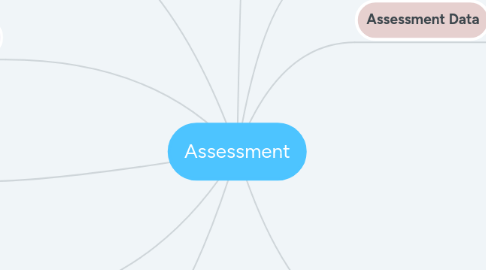Assessment
저자: McKenzie Shook


1. 1. Formative
1.1. Formative assessments monitor student learning. They are not graded and they can help the struggling students address problems.
1.2. Examples-Graphic Organizers and peer or self assessments
2. 2. Interim/Benchmark
2.1. Interim or Benchmark assessments are used to evaluate the learning progress of the students.
2.2. Examples-District assessment or CFA exam
3. 3. Summative
3.1. Summative assessments evaluate student learning at the end of a unit lesson.
3.2. Examples-A midterm exam or a final project
4. 4. Performance
4.1. Performance assessments requires to perform a task rather than select an answer from a ready made list.
4.2. Examples- Demonstrations or plays
5. 5. Diagnostic
5.1. Diagnostic assessment is a form of measurement of students strengths and weaknesses using prior knowledge.
5.2. Examples-A placement exam and pretests
6. The teacher can analyze the data collected from assessments to assist the struggling students and find strategies in the everyday classroom.
7. Assessments allow the teacher to see the progress that the students are making and allow for teacher to address problems the students are having. Assessments allow for the teacher to collect data after the end of a unit or semester.
8. Assessment Data
8.1. 3 Struggling Students Scores for RTI and strategies to improve scores- Student 1 %82 Student 2 %75 Student 3 %65 Strategies: Cornell notes, annotating text lesson, and small group activities (gallery walk using expository text, Kahoot using vocabulary...etc.) Data taken from CFA over expository text
9. H.O.T Questions
9.1. Opening Questions
9.1.1. 1. What is the theme of this reading? 2. How does this poem begin? 3. What can you infer from the title of this poem?
9.2. Guiding Questions
9.2.1. 1. Predict what is going to happen next in the story? 2. How does this story relate to the poem? 3. List three new vocabulary words from the poem.
9.3. Closing Questions
9.3.1. 1. Can you create your own ending to this poem? 2. Summarize the main idea of the poem we learned today. 3. Compare and contrast the similarities and differences between the story we read yesterday and the poem we read today.
